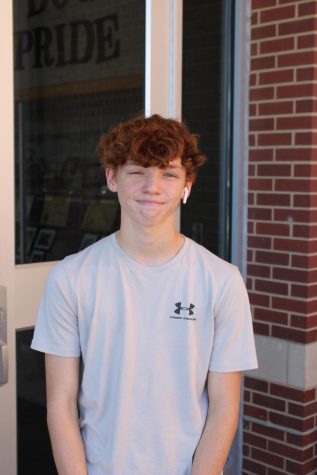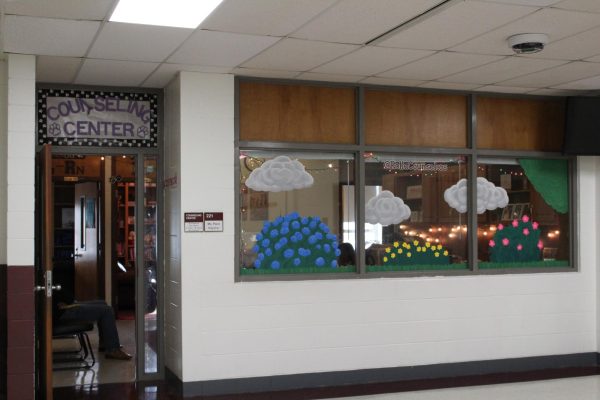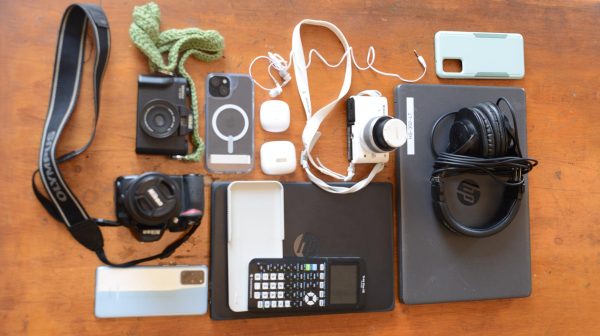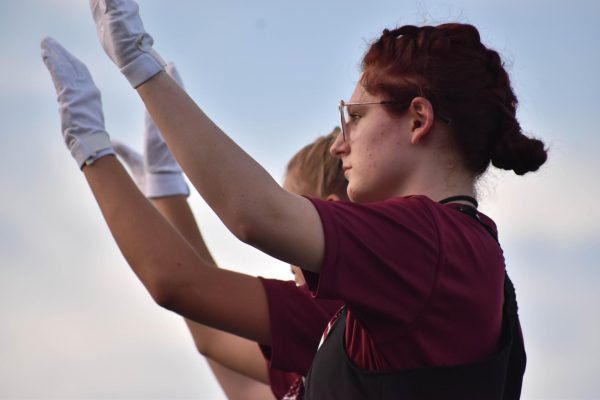Inside the Metaverse
Many new terms like crypto and NFTs have entered the public sphere, creating controversy and confusion in all corners of the web. Another concept with potentially huge consequences has recently been added to the mix: the Metaverse. As the Internet expands, the limits of its boundaries and its influence on people’s lives constantly change, and companies like Meta (formerly Facebook) look to this new Metaverse as the digital world’s next variation. What would a world in the meta truly entail, and how much should we let it influence our lives?
The definition of the Metaverse is rather vague. Generally, a single metaverse describes a world in which people can interact in an augmented, digital world, while the Metaverse as a whole would encompass all of these smaller worlds, allowing users to jump between them instantaneously, analogous to switching tabs on a browser or apps on a phone.
Aspects of the Metaverse already exist in games such as Roblox and Fortnite, which can be played in VR and feature interactive events. Concerts within Fortnite have become well-known, featuring artists like Marshmello and Ariana Grande, while Roblox offers various multiplayer games and activities for people to partake in. Roblox also allows users to sell and buy personalized creations, and has started embracing its association with the meta by advertising events like Metaverse Champions.
Another game that exhibits metaverse-like qualities is VR Chat, which solely exists for people to interact in a three-dimensional, digital space. Users choose or create avatars to represent themselves, then enter virtual rooms where they can meet and talk with strangers and friends.
Junior Oscar Cheng often socializes online. He owns a VR headset and uses VR Chat to meet and interact with others.
“It’s like talking to people in real life, just more virtual. There are worlds that people can join, and it’s kind of like a huge group call,” said Cheng. “I got into it because I saw YouTubers connecting with people around the world who spoke different languages and getting to know them. I’ve seen people actually get into relationships–like they met online, then met in real life and got together, and I think it’s cool how games like VR chat can connect people like that.”
However, he notes that there are also downsides.
“I’d say [my experiences are] more positive, but that doesn’t mean there aren’t any negatives. You don’t really know what [people] look like in real life or how they act. It can be kind of dangerous,” said Cheng.
COVD-19 quarantines and social distancing intensified the need for spaces to digitally interact with others in all parts of life. Video call applications like Zoom were highlighted as methods to meet for both work and recreation; however, virtual or mixed reality may provide a more fun and personal way to communicate when in-person options are not available. Microsoft is currently working on Mesh, a mixed-reality extension of their Teams application that focuses on person-to-person collaboration. Two features they plan to incorporate in Mesh are holographic versions of users that can appear in meetings, and interactive virtual models to be used in designing architecture, manufacturing, or planning. Another company, VictoryXR, is trying to increase the quality of online education by creating virtual learning opportunities, such as its own VR university campus that offers classes in all core subjects.
Natasha Green, an English teacher at Rolla High School, has mixed feelings about working online.
“When we were on a hybrid schedule doing [classes] online, it had some great benefits. I loved working from home and not having to drive an hour to work every day. I felt like I had more time to rest. But it wasn’t the same seeing kids on the screen as it is in the class, where you’re able to actually interact with them one on one.”
Senior Sarah Beetner, who wants to be a highschool teacher, is also skeptical of integrating the Metaverse into education.
“I would be fine working in a business environment online, but I don’t think I’d be comfortable teaching and not having any students come in-person. Even if you were in a virtual classroom and could interact with the kids’ avatars, it wouldn’t be the same. My worry is that the kids would feel less inclined to ask questions, and that the student-teacher interaction would be cut,” said Beetner.
Investors and companies across the world are also taking note of a different aspect of the Metaverse: digital real estate. People buy virtual plots of land in the hopes of developing each area into a storefront where brands can advertise their wares. For example, the company Tokens.com recently paid $1.7 million to acquire part of the metaverse real estate company Metaverse Group. From there, Tokens.com built a tower in a metaverse called Decentraland, which they plan to lease to other companies and host advertisements. Virtual structures like malls, concert venues, and shopping districts are all available to be bought for high sums of money. All of this is based on the expectation that people will virtually travel through such spaces, looking for items to buy with cryptocurrencies or NFTs.
As seen, companies plan to incorporate the Metaverse into a majority of everyday life, which causes concern for many.
Green teaches Science Fiction, a class that often deals with ethics and moral dilemmas concerning technology. She thinks that the Metaverse will cause people to lose their connection with each other and with real life.
“From a personal perspective, I like to see people’s real faces–I just like reality. I think sometimes we’re escaping too much and losing that personal connection. I know the idea [of the Metaverse] is to bring people together, and I think it will to some extent, but I think it will also create more distance if it’s not used properly,” said Green. “I think some people will want to stay in their virtual world all the time because they can get things there that they can’t have in reality, but I think it’s good to unplug and be a part of what is actually around you.”
Senior Trevor Cox also believes that people will spend too much time in the Metaverse in order to escape reality.
“Every once in a while, you just have to touch some grass or go outside. When people run away from their problems, it seems like that’s all they’re going to do, and they won’t face things head on. They’ll be like, ‘I can just get in this virtual world, not be myself, and make myself better than I actually am,’” said Cox.
Meanwhile, Beetner fears that the consequences of people’s use of technology will become more prevalent and severe.
“It’s being debated to qualify technology addiction as a mental health condition on the same level as alcoholism,” said Beetner. “I know people who use their phones an excessive amount. Right now, they have an outlet. What if they had a doorway? It’s just expanding on the problems we already had and making them 10 times bigger, 10 times harder to fix,” said Beetner.
Beetner also thinks that relationships will be negatively affected.
“Imagine if every single connection that you have was based on the Metaverse, and then it shut down. That would crush people’s entire lives. What if your strongest relationship is with someone halfway across the world? What if you never have a relationship with your siblings?”
Green also stresses the possibility of companies collecting personal data in the Metaverse.
“Everybody wants your data. When you’re getting apps, even if they’re free apps, if you’re not careful, you’re signing away your life. You’re practically letting them peek in and see everything about you. Facebook’s really good at that, and so is Google. So for all the ease and the niceties and the cool sci-fi factor [of the Metaverse], if you’re not careful, you’re giving up a lot to all these companies. There’s not gonna be a whole lot of privacy.”
Beetner, although she acknowledges this lack of privacy, has a different take on the matter.
“I think most of the things that people view as private that would be impeded on by the Metaverse have already been impeded on. The idea of privacy is very lax, but it’s also in the realm of the stuff that you decide to put onto a site. You have to take that into account, like you don’t have to give them real information. And that’s the whole point. It’s an entire new reality. You don’t have to be you,” said Beetner.
Another issue with virtual social interactions is the anonymity between strangers, something that is already extremely prevalent. Cox is especially worried for the safety of children.
“If it’s a random person, how are you supposed to know if they’re being truthful? That’s why I wouldn’t let little kids onto the Metaverse, because they’re very susceptible to strangers and stuff like that. Like the stranger can make themselves whatever they want, then coax a kid into meeting up with them, that kind of thing,” said Cox.
Finally, it should be noted that the Metaverse will likely be built for profit, which raises questions on how prevalent advertising will be in virtual worlds and how marketing will be used to influence consumers. Mark Zuckerberg, the chief executive officer of Meta, plans to be a large part in building the infrastructure of the Metaverse. He stated in a company earnings call that “Ads are going to continue being an important part of the strategy across the social media parts of what we do, and it will probably be a meaningful part of the Metaverse, too.”
Despite all these concerns, it cannot be denied that an interconnected Metaverse would allow for methods of global communication unlike any other. The ability to see and meet with people from across the world in an immersive, interactive environment, all while staying home, is an exciting possibility.
“If the Metaverse does evolve and actually become somewhat similar to Ready Player One, I feel like that’d be way cooler, considering you could interact with 100 times more people than in the area you live. With the Metaverse, you can meet people from New Zealand or Denmark, unlike just going around your local town and finding people to talk to,” stated Cheng.
Beetner also believes that the Metaverse could make personal interactions more accessible.
“It could be advantageous to have a virtual world for people who need it, like if they were confined to a bed or couldn’t convince themselves to come out of the house. People with agoraphobia could try and get acclimated to what the real world is like,” said Beetner.
With such intense discussion of the Metaverse, one must wonder if such a structure is even presently feasible. Spoiler: not really. In fact, Beetner believes Zuckerberg rushed to announce his company’s involvement in the Metaverse to save face, and that the concept will likely not come soon.
“Honestly, it seems like [this is] Facebook’s way to save a dying brand. This is coming from a younger generational person, but it’s mostly Instagram that’s been keeping Facebook alive. Facebook has been getting a lot of negative attention from social media and just media in general, and this rebranding is like a call for help. It seems like a way to get away from their past and try and forge a future, except that future is ethically mixed,” said Beetner.
Cox also believes that VR technology is not advanced enough for the Metaverse.
“I’d say it might happen in like 10 years or so, maybe five with pushing it. Right now, it’s just that not many people have VR stuff because it’s a new thing,” said Cox.
However, even if the infrastructure for the Metaverse was present, should society expand to this next level of the Internet? Beetner doesn’t believe so.
“We dove in head first with cell phones and the Internet, and it’s gotten very out of control very quickly, and now we can’t backpedal. We used ourselves as test mice, and I feel like Facebook is making the first step into the next trap before we can even backpedal the first time,” Beetner said. “Collectively as a society, I hope that we take a step back and ask, ‘Is this really the future that we want?’”
Beetner worries that people will ignore present issues in favor of escaping into the Metaverse.
“If we destroy our air quality and we can’t go outside anymore, I’ll just hop on my headset and go outside [virtually], because who cares? It would make a lot of the things that make everyday life meaningful, meaningless,” said Beetner.

My name is Angela and I’m currently drinking a medium mocha frappe. I’m a senior staff writer and this is my first year at ECHO. I enjoy drawing, and...

My name is Haylen Jackson, I'm a junior and it’s my second year in ECHO. I like Echo. I love my dogs and my mom.








